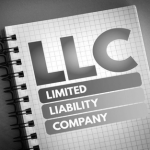You want to form a business in North Dakota. You know you should form a business entity for various reasons. You ask yourself: “Should I form a corporation or limited liability company?” Read on to find the answer.
Owner Liability Protection
Generally, the primary reason one or more people want to form a business entity is to make sure the business’s debts, obligations, or other liability does not automatically become the owners’ debt, obligation, or liability. This liability protection is called the “corporate veil.” The corporate veil protection, however, is not absolute. Business owners can still be held personally liable by what is called “piercing the corporate veil.”
In order to pierce a corporation’s corporate veil, a plaintiff would need to prove one or more of the following factors: insufficient capitalization for the purposes of the corporate undertaking, failure to observe corporate formalities, nonpayment of dividends, insolvency of the debtor corporation at the time of the transaction in question, siphoning of funds by the dominant shareholder, nonfunctioning of other officers and directors, absence of corporate records, and the existence of the corporation as merely a facade for individual dealings. “Failure to observe corporate formalities” generally means failing to follow the corporation’s own rules in taking action. It also means failing to memorialize those rules in the form of a minute book.
In order to pierce a limited liability company’s corporate veil, a plaintiff would need to prove one or more of the same factors. The one key difference is that failing to observe corporate formalities cannot be a basis for piercing the corporate veil. Simply stated, it’s more difficult to pierce an LLC’s veil, so it offers more protection.
Advantage: LLCs
Entity Liability Protection
While most think about protecting themselves from their business’s liability, most should also consider firewalling the business’s exposure from personal liability as well. In other words, a corporation should also want protection from its shareholders’ liability, and an LLC should also want protection from its members’ liability.
Some terminology is important. Let’s say a jury finds that a person negligently drove a motor vehicle and caused another person’s injury. The Court will enter a money judgment against the negligent driver in favor of the injured person. The negligent driver would be called a judgment debtor, and the injured person trying to collect money from the driver to satisfy the money judgment is called a judgment creditor. Judgment creditors can seek cash to satisfy the money judgment. Judgment creditors can also seek to satisfy the money judgment from a wide range of nonexempt personal and real property. Membership interests and shares of stock are usually such nonexempt personal property.
If the judgment debtor owns membership interests in an LLC, the judgment creditor could seek a charging order on those membership interests. The judgment creditor’s exclusive remedy, as it pertains to the membership interest, is to obtain what’s called a charging order under N.D.C.C. § 10-32.1-45. The charging order’s effect is limited, however. The judgment creditor cannot force a foreclosure sale of the membership interests and cannot vote in place of the judgment debtor on any company business. The judgment creditor cannot replace management, declare distributions, sell assets, or liquidate the LLC. The judgment creditor simply is paid distributions in place of the judgment debtor. If distributions are not declared, then the judgment creditor gets nothing from the membership interests.
Collection on shares works differently. If a judgment debtor is also a shareholder in a corporation, the judgment creditor could seek a writ of execution against those shares pursuant to N.D.C.C. § 28-21-08 and sold pursuant to N.D.C.C. ch. 28-21. The proceeds of the sale will go toward satisfying the money judgment. The buyer (who may be the judgment creditor or a third party) will step into the shoes of the judgment debtor and can vote on the shares. Voting on the shares can mean, depending on the number of shares, replacing the board, declaring dividends, selling assets, or even liquidating the corporation. From a judgment creditor’s perspective, shares are more valuable than membership interests.
Advantage: LLCs
Management
Every business entity must have rules by which it manages its affairs. Those rules usually come in the form of a combination of statutory rights and obligations and contractual rights and obligations pursuant to those statutes.
Under North Dakota law, a corporation must be managed by a board of directors. The shareholders elect the board of directors. The board of directors elects or appoints its officers like the president, vice president, secretary, and treasurer.
An LLC must be managed in one of three ways: (1) by its members; (2) by a board of governors; and (3) by one or more managers. Member management most resembles partnerships. Board of governor management resembles a board of directors. Manager-managed LLCs mean a single person or persons is in charge of the entire company. Limited liability companies can be managed the same way a corporation is managed. However, boards are usually a more cumbersome form of management, so the owners may want a different form. Limited liability companies offer much more management flexibility than corporations.
Advantage: LLCs
Taxation
An LLC is taxed one of four ways: (1) as a disregarded entity; (2) as a partnership; (3) as an S-corporation; or (4) as a c-corporation. A corporation is taxed one of two ways: (1) as an S-Corporation; or (2) as a C-Corporation. Limited liability companies offer much more taxation flexibility than corporations.
Advantage: LLCs
Cost
In North Dakota, the fee to file articles of incorporation to form a corporation is currently $100.00. Each year, a corporation must also file an annual report and pay a $25.00 fee. The fee to file articles of organization to form a limited liability company is currently $135.00. Each year, an LLC must also file an annual report and pay a $50.00 fee. A corporation’s filing fees are less.
The legal fees associated with corporations and limited liability companies are about the same.
Slight Advantage: Corporations
Winner:
An LLC almost always is the better business form in North Dakota. That said, individual circumstances vary. This is why you should contact a business law attorney at SW&L to discuss your options.










